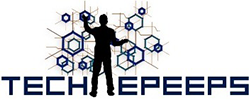The abundance of web-scale textual information out there has been a significant factor within the improvement of generative language fashions, similar to these pretrained as multi-purpose basis fashions and tailor-made for specific Pure Language Processing (NLP) duties. These fashions use huge volumes of textual content to select up complicated linguistic constructions and patterns, which they subsequently use for quite a lot of downstream duties.
Nevertheless, their efficiency on these duties is very depending on the standard and amount of knowledge used throughout fine-tuning, significantly in real-world circumstances the place exact predictions on unusual concepts or minority lessons are important. In imbalanced classification issues, energetic studying presents substantial challenges, primarily as a result of intrinsic rarity of minority lessons.
In an effort to be sure that minority instances are included, it turns into vital to gather a large pool of unlabeled information in an effort to correctly deal with this problem. Utilizing standard pool-based energetic studying strategies on these unbalanced datasets comes with its personal set of challenges. When working with large swimming pools, these strategies are usually computationally demanding and have a low accuracy fee due to the opportunity of overfitting the preliminary determination boundary. Because of this, they may not search the enter house sufficiently or discover minority examples.
To handle these points, a crew of researchers from the College of Cambridge has offered AnchorAL, a singular methodology for energetic studying in unbalanced classification duties. AnchorAL fastidiously chooses class-specific examples, or anchors, from the labeled set in every iteration. These anchors are used as benchmarks to search out the pool’s most comparable unlabeled examples. These comparable examples are gathered right into a sub-pool, which is then used for energetic studying.
AnchorAL helps the applying of any energetic studying strategy to large datasets by utilizing a tiny, fixed-sized subpool, so successfully scaling the method. Class stability is promoted and the unique determination boundary is stored from changing into overfitted by the dynamic number of new anchors in every iteration. The mannequin is healthier in a position to determine new minority occasion clusters inside the dataset due to this dynamic modification.
AnchorAL’s effectiveness has been demonstrated by experimental evaluations carried out on a spread of classification issues, energetic studying methodologies, and mannequin designs. It has an a variety of benefits over present practices, that are as follows.
Effectivity: AnchorAL improves computational effectivity by drastically reducing runtime, ceaselessly from hours to minutes.
Mannequin Efficiency: AnchorAL improves classification accuracy by coaching fashions which might be extra performant than these skilled by rival strategies.
Equitable Illustration of Minority Courses: AnchorAL produces datasets with better stability, which is critical for exact categorization.
In conclusion, AnchorAL is a promising improvement within the space of energetic studying for imbalanced classification duties, offering a workable reply to the issues offered by unusual minority lessons and massive datasets.
Try the Paper and Github. All credit score for this analysis goes to the researchers of this undertaking. Additionally, don’t overlook to comply with us on Twitter. Be part of our Telegram Channel, Discord Channel, and LinkedIn Group.
In the event you like our work, you’ll love our publication..
Don’t Overlook to hitch our 40k+ ML SubReddit
Tanya Malhotra is a last yr undergrad from the College of Petroleum & Vitality Research, Dehradun, pursuing BTech in Laptop Science Engineering with a specialization in Synthetic Intelligence and Machine Studying.She is a Knowledge Science fanatic with good analytical and significant considering, together with an ardent curiosity in buying new expertise, main teams, and managing work in an organized method.




















